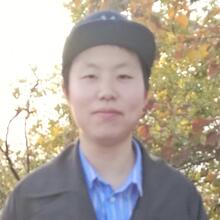Introducing Wei
 Wei Zhou’s graduate education and postdoc experiences have taken him to many different universities and companies. He completed a Masters in MOE-Microsoft Key Laboratory of Multimedia Computing and Communication at the University of Science and Technology of China (USTC), and subsequently completed a PhD from USTC. During these studies, he was a visiting scholar at the National Institute of Informatics (NII) and worked with Intel ICRI MNC, Microsoft and Alibaba. He was also a visiting PhD student at the Image & Vision Computing (IVC) Laboratory at the Department of Electrical and Computer Engineering (ECE) at the University of Waterloo, before working here as a postdoc. Wei Zhou is now an Assistant Professor in the School of Computer Science and Informatics at Cardiff University.
Wei Zhou’s graduate education and postdoc experiences have taken him to many different universities and companies. He completed a Masters in MOE-Microsoft Key Laboratory of Multimedia Computing and Communication at the University of Science and Technology of China (USTC), and subsequently completed a PhD from USTC. During these studies, he was a visiting scholar at the National Institute of Informatics (NII) and worked with Intel ICRI MNC, Microsoft and Alibaba. He was also a visiting PhD student at the Image & Vision Computing (IVC) Laboratory at the Department of Electrical and Computer Engineering (ECE) at the University of Waterloo, before working here as a postdoc. Wei Zhou is now an Assistant Professor in the School of Computer Science and Informatics at Cardiff University.
Connecting with a community of peers
Wei explains that he is “fortunate to work with so many talented researchers here” at the University of Waterloo, and has found his supervisor and colleagues to be very nice. He has found the environment has led to lots of collaboration and has found he has learned much from his colleagues.
To build these positive and productive relationships with his supervisors, colleagues, and peers, Wei emphasizes good communication skills, as well as opportunities to connect and talk. In his area, Wei and his peers have organized group meetings to talk about research progress, which also provide opportunities for everyone to get to know each other better. Wei has also found that being open-minded and respectful has supported him in building relationships. In particular, Wei emphasizes that everyone has his/her strengths. This mindset helps Wei facilitate meaningful relationships and appreciate the thoughts and findings of others.
Outside of peers in his group, Wei has also built many connects by participating in conferences, and through introductions by other friends. When connecting with those outside his discipline and group, Wei describes the biggest challenge as the “knowledge barrier” that comes from having different disciplinary backgrounds. However, despite this challenge, Wei has connected with researchers from another department to work on a successful interdisciplinary project. He shares that the group “integrated the characteristics of our subjects to target a road estimation problem and submitted our manuscript to a top-tier journal”.
Advice to postdocs
Wei strongly encourages other postdocs, “do not be afraid to build connections with others”, as he believes “many great discoveries come from good collaboration”. To build these connections, he suggests participating in more academic conference activities and putting in effort and communication to search for potential connections. Wei also highlights his own experience serving as associate editor or guest editor roles for international journals as a great way to expand your impact and connect with other researchers from around the world.









